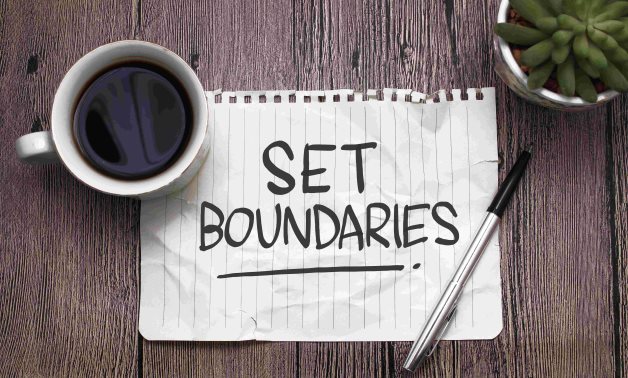A professional network was asked to share their opinion on the subject of whether HR should be friends with co-workers and whether socializing with them outside of work should be avoided or not. These four lessons are learned from their previous experiences. Here's how HR experts might strike a balance between formality and friendliness:
1. Set Clear Boundaries
More often than not, you don't know you need limits until after they've been violated. However, if you consider these boundaries up front, you can avoid a lot of headaches afterwards. Establish limits that will serve as a guide for your behavior as you build relationships at work, and when necessary, convey those boundaries to your coworkers.
Matthew Burr, a consultant in human resources with Burr Consulting LLC, encountered a scenario in which his superior's pursuit of a friendship had an adverse effect on their working relationship. "My supervisor always invited me to various social functions when I was employed as a HR Manager at a paper factory. I went once, but I turned down any subsequent invitations. He brought it up during my performance review because he was obviously a little offended. Although I maintain a certain degree of separation between my personal and professional lives, I had to clarify that it was nothing personal.
Setting limits can be challenging (especially with superiors), but doing so early on might help depersonalize actions that otherwise could be offensive. You may be able to avoid awkward situations if you are clear that you personally prefer not to attend employee happy hours, take part in after-hours activities, and hang out with employees.
Whatever limts you decide to set will probably vary depending on your particular corporate culture, but it's essential that you as a HR specialist establish boundaries clearly because you are a representative for your organization.

2. Avoid picking favorites
Fostering a sense of employee favoritism is a major risk of friendships between HR and employees. It can seem like particular people are given more opportunities and less discipline than their colleagues just because HR has close friendships with them. Not to mention, HR might unavoidably need to break bad news to a colleague whom they consider a close friend.
According to Pamela Shand, MS, CPRW, CEO of Offer Stage Consulting, both parties must be mature enough to recognize that your professional jobs take priority and that if an employee cross the line, you will have to step in with your HR hat on and do your job. I've seen this lead to problems when there isn't that understanding. The employee doesn't anticipate the HR Manager holding them responsible for their conduct, so when it does, they become defensive. Avoid developing friendships at work if you, as the HR director, are worried about it. Maintaining your professionalism and not jeopardizing your reputation in favor of a friendship is the best practice.
It's common for HR to form personal friendships with employees, especially on small or tight-knit teams. If you belong to this group, bear in mind that your HR obligations could put you in a difficult position.
3. Avoid gossip
It is your responsibility as an HR representative to set a good example for staff members and to report any behavior that violates company rules. The majority of staff members are aware that HR is not the place for rumors, but if you have friends throughout the organization, you might run into gossip. Always be prepared to act as HR and be wary of employee rumors.
Corplandia Communications owner, Caroline Siemers recalls the moment she understood she couldn't serve as an HR representative and a close friend at the same time. She was employed in a role that ultimately reported to HR, but Caroline had pals all around the company, so she once had lunch with one of them. She brought up the team's inappropriate behavior but claimed she didn't want to cause a scene. Then, she went back to her manager, who instructed her to file a report. She immediately realized that she represented HR everywhere she went to. Although she hadn't previously seen herself in that way, it showed her how to be an employee champion without being a friend.
HR serves as the business's moral compass. HR should set a good example for employee conduct, but it doesn't imply HR has to be the bad guy or the "Principal's office."

4. Be Personal
It is crucial that HR is human even if it is obvious that boundaries must be upheld. According to Shand, "there are many ways to be warm, open, and caring while keeping professional limits of various professions." It's crucial to achieve this balance. It’s importan to make sure HR is empowered yet accessible to their colleagues.
According to Shand, HR's top priority is to pay attention to the employee and take their interests into account. He once interviewed a candidate who desired to advance to a more senior position. The candidate sobbed and shared very intimate facts about her impending divorce. It was the financial burden, rather than readiness for the role, that motivated her. He listened to her, but in the end he needed to think about her long-term success and not just give her a new position. He was aware that she didn't want to hear this, but he had to act in her best interests. Finding a balance between being professional and being human is important.
However, HR Florida State Council President, Lynnette Holsinger, thinks that with the correct amount of balance, HR and workers can develop deep bonds with one another. “I’ve had an associate for over ten years who wanted to pursue a career in HR. I’ve taken her under my wing and helped coach and mentor her in her career. She knows I have her back and am always there to listen to her.”
"Just because I have her back personally and professionally doesn't mean we're hanging out on weekends," says Holsinger, who warns that it's also crucial to be conscious of your HR obligations. While maintaining professionalism, you can still show your staff that you care.
Workplace interactions are a normal part of life, but as an HR representative, it's crucial to strike a balance between friendliness and professionalism. The question of whether HR should be friends with employees or not has no right or wrong answer.
Source: blog.namely.com








